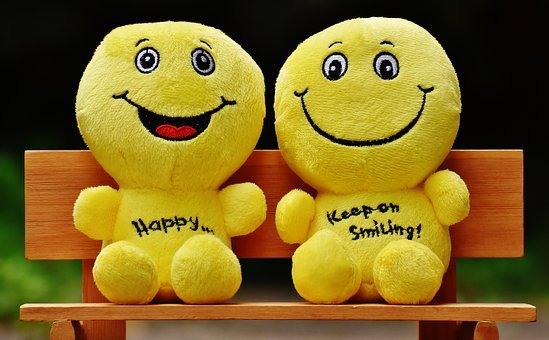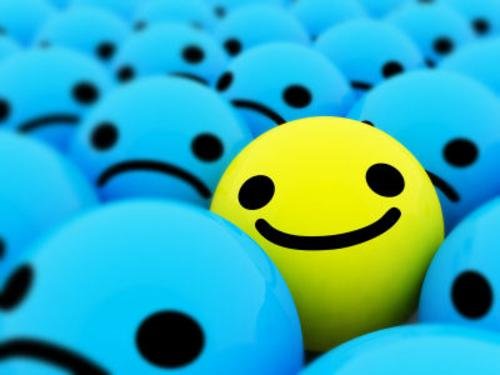Día Internacional del Momento de la Risa / International Moment of Laugh day
por @Villarrealjj

fuente
Saludos amigos, en base del calendario posteado por @belenguerra, me dedico a realizar una publicación con respecto al día internacional del momento de la risa.
Empezaré definiendo lo que conocemos por risa:
Es un balbuceo lúdico, instintivo, contagioso, estereotipado y de control inconsciente o involuntario, que raramente se produce en soledad. En los seres humanos, la risa se inicia, en promedio, hacia los cuatro meses de edad, y, según los recientes estudios científicos, constituye una forma de comunicación innata heredada de los primates fuente.

fuente
Es interesante saber que algo que consideramos tan placentero y relajante como la risa, no siempre fue considerado como tal. Dentro de la filosofía era considerado como un elemento frívolo y de poca profundidad por la mayoría de los pensadores.
Platón aparentemente no tenía sentido del humor y pensaba que la risa era una manifestación de la maldad o soberbia, creía que lo que hace a una persona risueña, es la ignorancia sobre sí misma: la persona risueña se cree más sana, de mejor aspecto, más virtuosa o más sabía de lo que realmente es. Mientras que Aristóteles creía que lo risible era una subdivisión de lo feo.

fuente
En el cristianismo encontramos una referencia a la risa cuando Abraham fue visitado por Dios para decirle que sería padre:
Abraham se inclinó hasta tocar el suelo con la frente, y se rió, mientras pensaba: «¿Acaso un hombre de cien años puede ser padre? ¿Y acaso Sara va a tener un hijo a los noventa años? Gen 15:15-17.

fuente
En el medievo los clérigos consideraban que las burlas y las risas no provenían de Dios. Durante la edad media, la iglesia católica dominaba gran parte de los aspectos de política y gobierno por lo que consideraba que la risa debía ser reprimida, pues era lo contrario a la humildad y a la caridad como lo mencionaba san Benito en el siglo VI.

fuente
No sería hasta el siglo XVII y XVIII en Francia donde las comedias tendría una gran importancia y más por la aparición de la comedia como género teatral.
A finales del siglo XIX podemos ver a grandes estudiosos abordando investigaciones y publicaciones sobre la risa:
Lo cómico exige algo así como una anestesia momentánea del corazón. Se dirige a la inteligencia pura y simple, Henri Bergson.
Sigmund Freud centraba su atención en los epifenómenos asociados del humor, la personalidad, la sociabilidad y la cognición.

fuente
También podemos aplicaciones más nobles en el uso de la risa en la modernidad como lo es la risoterapia, que no es más que una técnica psicoterapéutica que busca generar beneficios mentales y emocionales a través la risa. fuente
Actualmente las investigaciones han dejado claro que las risa trae beneficios en nuestro cuerpo, o al menos un estilo de vida que mantenga a la risa como factor constante. Entre los beneficios podemos destacar los siguientes:
• Libera del temor y la angustia.
• Contribuye a aplacar la ira.
• Contribuye a un cambio de actitud mental que favorece la disminución de enfermedades.
• Favorece la digestión al aumentar las contracciones de todos los músculos abdominales.
• Facilita la evacuación debido al “masaje” que produce sobre las vísceras.
• Aumenta el ritmo cardíaco y el pulso y, al estimular la liberación de las hormonas “endorfinas”, permite que éstas cumplan una de sus importantes funciones, como es la de mantener la elasticidad de las arterias coronarias.
• Disminuye la presencia del colesterol en la sangre pues equivale a un ejercicio aeróbico.
• Ayuda a reducir la glucosa en sangre. fuente.

fuente
Definitivamente, la risa es un elemento indispensable que debe estar en nuestras vidas. Confieso que esta publicación ha cambiado bastante mi perspectiva sobre la risa. Siempre me consideré una persona alegre, pero indiscutiblemente me llamo a reflexión expresiones como:
En nada se manifiesta más claramente una personalidad que en aquello de lo que se ríe, Wolfgang von Goethe.
Ciertamente dejando en evidencia que no solo somos lo que comemos, sino, también de lo que nos reímos. Por lo que dejando claro que la risa es fundamental para nuestro buen vivir, la risa consciente, la risa sana, destacó esto, para hacer a un lado la risa causada por burla, maltrato o sufrimiento de otra persona u animal.
Teniendo en cuenta que nuestra risa es sana, invito a fomentarla, la vida es más placentera, es más colorida, es más vida! Si eres de los que le sobra la risa, o la facilidad de hacer reír a otro, no dejes que este día o los que vienen terminan sin hacer reír a alguien, no digo que seamos payasos de profesión, pero es que no sabemos que una risa, verdaderamente le puede cambiar no solo el día a otra persona, sino, también la vida.
Este fue mi post por el día mundial del momento de la risa espero que sea de su agrado!!

[ENGLISH]
International Moment of Laugh day by @Villarrealjj

fuente
Greetings friends, based on the calendar posted by @belenguerra, I am dedicated to make a publication regarding the international day of laughter moment.
I will start by defining what we know by laughter:
It is a playful, instinctive, contagious, stereotyped, and unconsciously or involuntarily controlled babbling, which rarely occurs in solitude. In humans, laughter begins, on average, around four months of age, and, according to recent scientific studies, constitutes a form of innate communication inherited from primates source.

fuente
It is interesting to know that something that we consider as pleasant and relaxing as laughter, was not always considered as such. Within philosophy it was considered a frivolous and shallow element by most thinkers.
Plato apparently had no sense of humor and thought that laughter was a manifestation of wickedness or pride, he believed that what makes a person laugh is ignorance about himself: the laughing person thinks he is healthier, better looking, more virtuous or more knowledgeable than he really is. Whereas Aristotle believed that the laughable was a subdivision of the ugly.

fuente
In Christianity we find a reference to laughter when Abraham was visited by God to tell him that he would be a father:
Abraham bent down to touch the ground with his forehead, and laughed, as he thought, "Can a man a hundred years old be a father? And will Sarah bear a son at ninety years old? Gen 15:15-17.

fuente
In medieval times the clergy considered that mockery and laughter were not from God. During the Middle Ages, the Catholic Church dominated much of the aspects of politics and government and therefore considered that laughter should be repressed, as it was the opposite of humility and charity as mentioned by St. Benedict in the 6th century.

fuente
It would not be until the XVII and XVIII century in France where comedies would have a great importance and more for the appearance of comedy as a theatrical genre.
At the end of the 19th century, we can see great scholars conducting research and publications on laughter:
The comic demands something like a momentary anesthesia of the heart. It addresses the pure and simple intelligence, Henri Bergson.
Sigmund Freud focused his attention on the associated epiphenomena of humor, personality, sociability and cognition.

fuente
We can also find more noble applications in the use of laughter in modern times, such as laughter therapy, which is nothing more than a psychotherapeutic technique that seeks to generate mental and emotional benefits through laughter. source
Currently research has made it clear that laughter brings benefits to our body, or at least a lifestyle that keeps laughter as a constant factor. Among the benefits we can highlight the following:
- It frees from fear and anguish.
- Contributes to appease anger.
- It contributes to a change of mental attitude that favors the reduction of diseases.
- It favors digestion by increasing the contractions of all abdominal muscles.
- It facilitates the evacuation due to the "massage" that it produces on the viscera.
- It increases the heart rate and pulse and, by stimulating the release of hormones "endorphins", allows them to fulfill one of their important functions, such as maintaining the elasticity of the coronary arteries.
- It decreases the presence of cholesterol in the blood as it is equivalent to aerobic exercise.
- It helps to reduce blood glucose. source.

fuente
Laughter is definitely an indispensable element that should be in our lives. I confess that this publication has changed my perspective on laughter quite a bit. I always considered myself a cheerful person, but unquestionably I was struck by expressions such as: > Nothing is more clearly manifested by laughter:
In nothing is a personality more clearly manifested than in that which is laughed at, Wolfgang von Goethe.
Certainly making it clear that we are not only what we eat, but also what we laugh at. So making it clear that laughter is fundamental for our good living, conscious laughter, healthy laughter, emphasized this, to set aside the laughter caused by mockery, mistreatment or suffering of another person or animal.
Considering that our laughter is healthy, I invite you to encourage it, life is more pleasant, it is more colorful, it is more life! If you are one of those who have a lot of laughter, or the facility to make someone else laugh, do not let this day or the next ones end without making someone laugh, I am not saying that we are clowns by profession, but we do not know that a laugh can truly change not only the day of another person, but also life.
This was my post for the world day of laughter moment I hope you like it!!!
